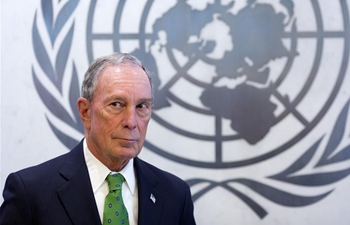WASHINGTON, March 12 (Xinhua) -- The U.S. decision to slap tariffs on steel and aluminum imports may trigger trade wars, which could cost the world economy 470 billion dollars by 2020, warned Bloomberg economists on Monday.
Last Thursday, U.S. President Donald Trump signed proclamations to impose steep tariffs on imported steel and aluminum amid mounting dissent from trading partners around the world.
In a scenario where the United States implements a 10 percent levy on imports and the rest of the world retaliates, an analysis by Bloomberg Economics published Monday said the global economy would be 0.5 percent smaller by 2020 than it would have been without tariffs.
The U.S. economy would be 0.9 percent smaller in 2020 compared with the forecast based on no tariffs.
Although that is an extreme scenario, "it's no longer an impossible one," said Bloomberg economists Jamie Murray and Tom Orlik.
Based on their model, the two economists estimated that global trade could be 3.7 percent lower by 2020 compared with the baseline scenario.
Murray and Orlik also warned that there will be a long-run hit to the global GDP, as suppressed competition and exchange of technology and ideas would reduce productivity and the world economy's sustainable growth pace.













